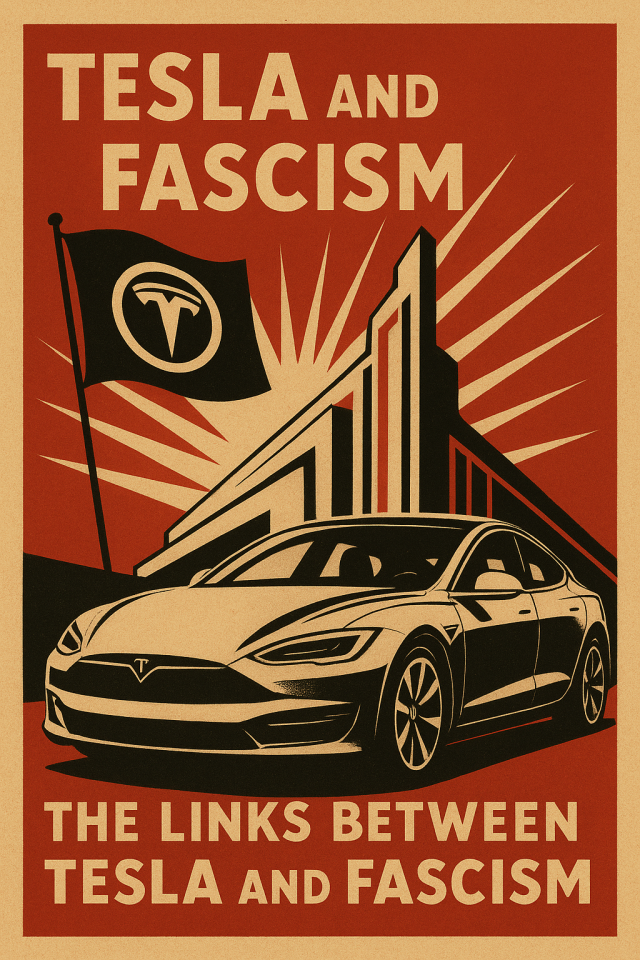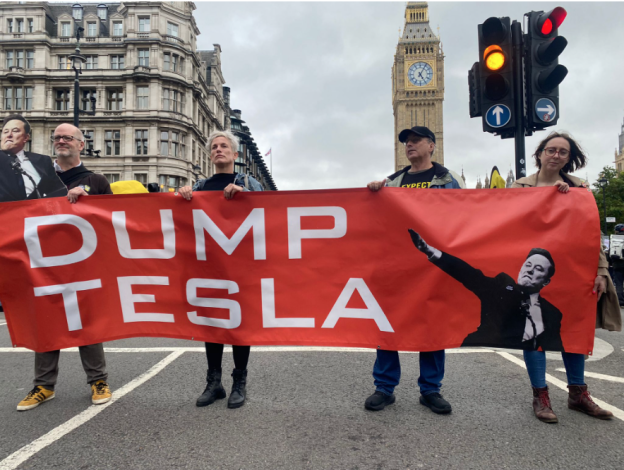
Let us be clear from the outset, driving a Tesla does not mean someone supports fascism.
But when scholars and critics talk about “links” between Tesla and fascism, they’re usually referring to cultural patterns, leadership style, labor relations, and political signalling — not the vehicles themselves.
Firstly the cult of personality is a feature. Fascism historically thrives on charismatic leaders, with strong emphasis on individual authority. Elon Musk has cultivated a persona as a visionary, genius innovator — many Tesla fans treat him almost like a political leader rather than just a CEO. Critics argue that this cult of personality around Musk can echo dynamics seen in fascist movements (though obviously not identical).
Then we have the techno-utopianism and authoritarianism as Tesla promotes a future centred on high-tech solutions ie self-driving cars, Mars colonisation, AI. Some scholars argue that certain strands of fascism embraced a similar “futurist” worship of technology, speed, and industry, often tied to authoritarian control. The idea that society’s problems can be solved by a visionary elite with advanced technology, rather than democratic debate, resonates with critiques of technocratic authoritarianism holds strong as well.
As for labour and control, fascist regimes historically suppressed labor unions and promoted top-down corporate control. Tesla has been repeatedly criticised for union-busting, punishing whistleblowers, and maintaining highly controlled workplaces. These practices aren’t unique to Tesla, but they fit into a broader critique of corporate authoritarian tendencies.
As for nationalism and identity, Tesla markets itself as a symbol of American ingenuity and dominance in EVs, which can resonate with nationalist narratives. While Tesla cars are global, some fans treat them as status symbols of Western/US technological superiority. Fascism often elevates technological power as a marker of national greatness.
Then we have online culture and political alignment. Here Musk’s recent political leanings and online behaviour (especially on X/Twitter) have aligned more with far-right figures and movements, some of which flirt with or openly embrace fascist rhetoric as we have seen on matters in the UK. This has bled into Tesla’s image: some critics view the company and its fanbase as increasingly tied to reactionary or authoritarian politics.
And finally it has aesthetic parallels. Fascism historically used sleek, modern design and celebrated cars/aviation as symbols of progress and power (think of Italy’s Futurism movement). Tesla’s minimalist, futuristic aesthetic taps into similar cultural motifs of speed, control, and technological destiny.
All these arguments, frankly should make us all very weary of buying into Tesla.
